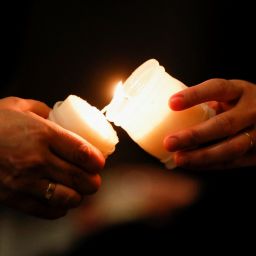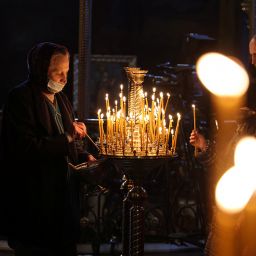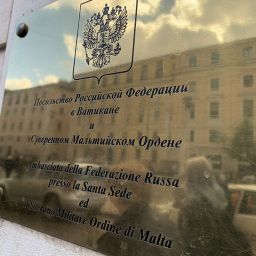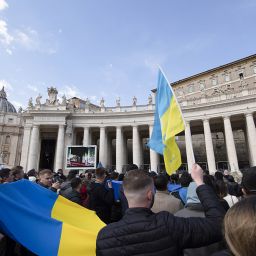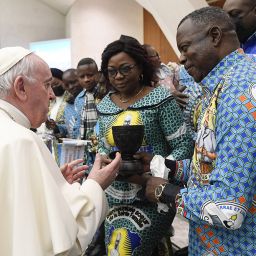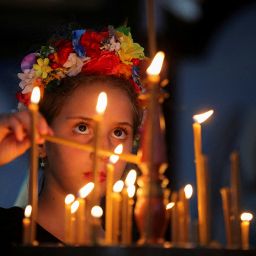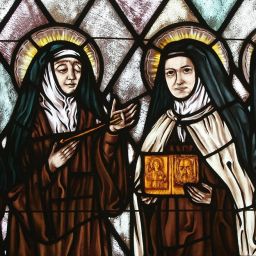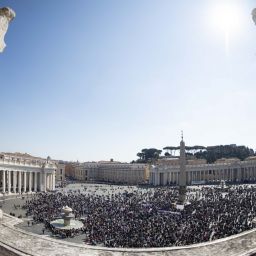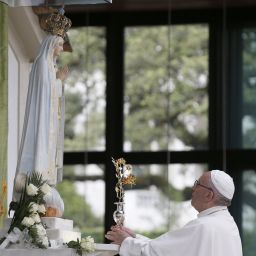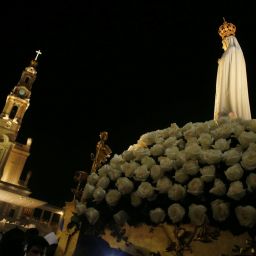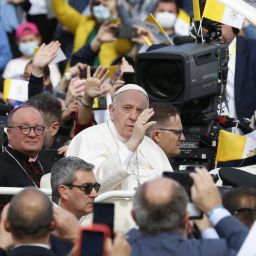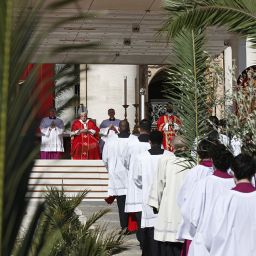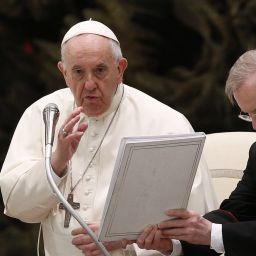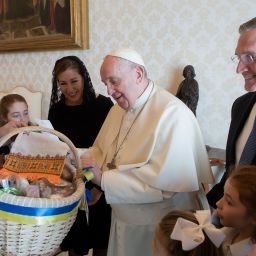
By Justin McLellan
Catholic News Service
VATICAN CITY — Pope Francis expressed his “spiritual closeness” and “solidarity” with those affected by a pair of powerful earthquakes that struck Turkey and Syria Feb. 6.
A 7.8 magnitude earthquake as measured by the U.S. Geological Survey hit southern Turkey before dawn Feb. 6 wreaking havoc in large areas of neighboring Syria. It was followed by what the geological survey said was a separate 7.5 magnitude earthquake, less than 12 hours later some 60 miles away.
By mid-afternoon local time Feb. 7, the Associate Press reported the combined official death tolls for Turkey and Syria had surpassed 5,000 and that as rescue efforts turn into recovery efforts and temperatures in the region drop, the number of victims was expected to continue rising.
The Catholic charity Aid to the Church in need said a Catholic priest was among the dead in Syria. Father Imad Daher died in the collapse of the residence of retired Melkite Archbishop Jean-Clement Jeanbart of Aleppo, who was injured and hospitalized, the charity said.
Pope Francis was “deeply saddened” to learn of the “huge loss of life” caused by the disaster and offered his “heartfelt condolences” to those mourning losses, wrote Cardinal Pietro Parolin, Vatican secretary of state, in telegrams to the Vatican’s ambassadors in Turkey and Syria.
The pope also prayed that emergency personnel would “be sustained in their care of the injured and in the ongoing relief efforts by the divine gifts of fortitude and perseverance.”
According to Turkish President Recep Tayyip Erdogan, the earthquake is the largest disaster to hit the country since 1939, when a 7.8 magnitude earthquake killed more than 32,000 people and injured over 100,000. It is unclear how high the number of dead and wounded from the Feb. 6 earthquakes will reach, he added.
The Turkish president said that more than 45 countries have offered to support Turkey in relief efforts in addition to NATO and the European Union.
The Middle East Council of Churches, representing Orthodox, Evangelical and Catholic churches, issued a statement calling on the international community to provide emergency aid to the region and to lift sanctions on Syria “so sanctions may not turn into a crime against humanity.”
Just a few hours after the quake, the Knights of Malta announced that Malteser International, their relief agency, was sending an emergency response team.
“Our local partners have an urgent need of support, especially in areas of northern Syria where hundreds of thousands of people live in simple refuges and now, with the earthquakes, are even more defenseless,” said Oliver Hochedez, head of the Malteser International emergency response department. “In the hospitals run by our partner organizations the number of injured arriving increases hour by hour. We must provide help rapidly.”
Chaldean Catholic Bishop Antoine Audo of Aleppo told Vatican News Feb. 6 that he had never seen such destruction in war-torn Syria. “There was a strong fear and now the people are in the street, in the cold and under the rain,” he said. “There is damage everywhere, even in the cathedral. The libraries are destroyed, the houses crumbled. It’s an apocalyptic situation.”
Caritas Internationalis, the umbrella organization of national Catholic charities, immediately began a fundraising campaign for relief efforts in Turkey and Syria. The charity has been active in Turkey since 1991 and in Syria since 2011, primarily providing aid for refugees.

